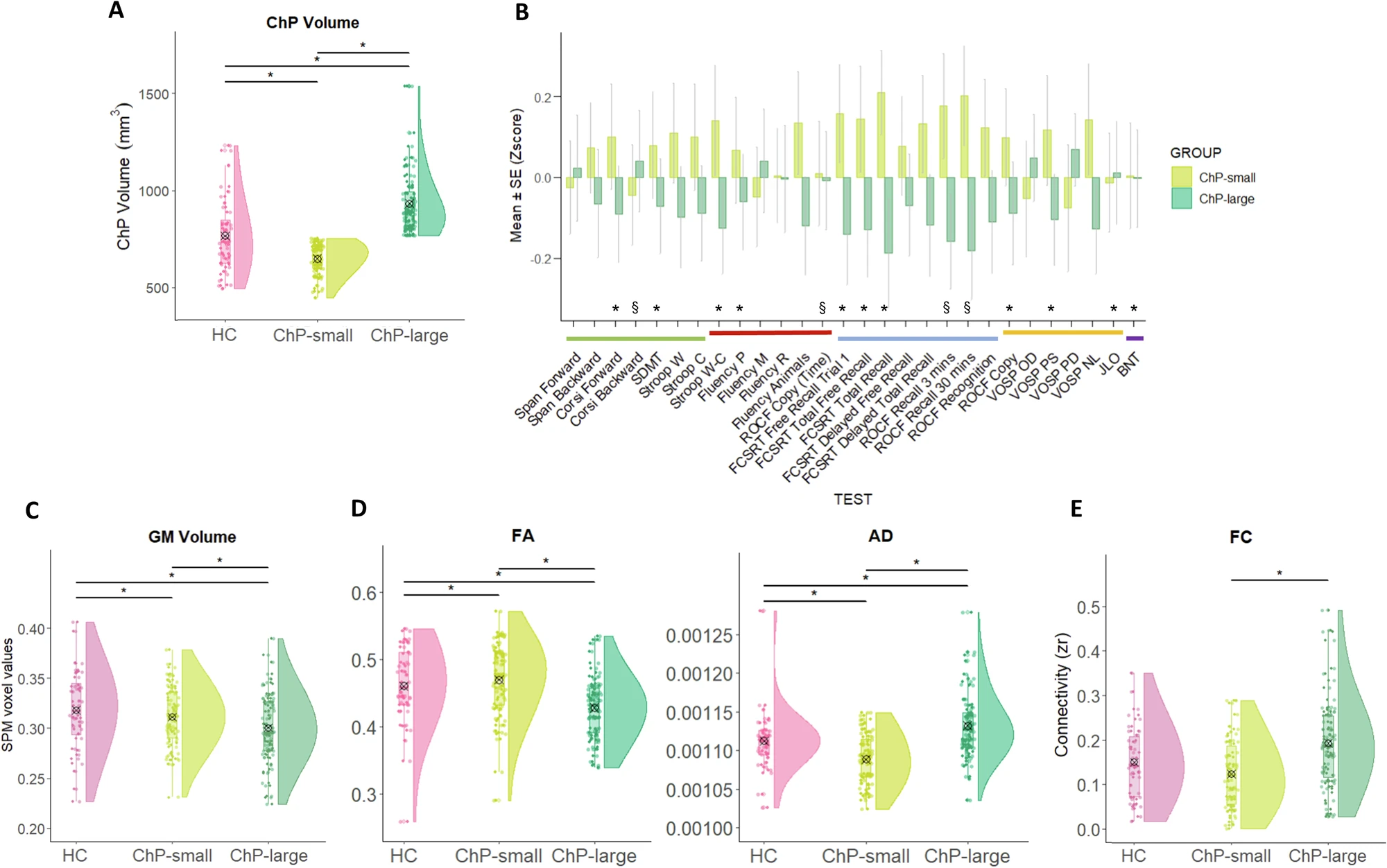Yann04
Senior Member (Voting Rights)
Abstract:
Patients with post-COVID condition (PCC) present with diverse symptoms which persist at long-term after SARS-CoV-2 infection. Among these symptoms, cognitive impairment is one of the most prevalent and has been related to brain structural and functional changes. The underlying mechanisms of these cognitive and brain alterations remain elusive but neuroinflammation and immune mechanisms have been majorly considered.
In this sense, the choroid plexus (ChP) volume has been proposed as a marker of neuroinflammation in immune-mediated conditions and the ChP epithelium has been found particularly susceptible to the effects of SARS-CoV-2. The objective was to investigate the ChP in PCC and evaluate its relationships with cognition, brain, and immunological alterations.
One-hundred and twenty-nine patients with PCC after a mean of 14.79 ± 7.17 months of evolution since the infection and 36 healthy controls were recruited. Participants underwent a neuropsychological, and neuroimaging assessment and immunological markers evaluation. Results revealed ChP volume enlargement in PCC compared to healthy controls. The ChP enlargement was associated with cognitive dysfunction, grey matter volume reduction in frontal and subcortical areas, white matter integrity and diffusivity changes and functional connectivity changes. These ChP changes were also related to intermediate monocytes levels.
Findings suggest that the ChP integrity may play a relevant role in the pathophysiology of cognitive deficits and the observed brain changes in PCC. The previously documented function of the ChP in maintaining brain homeostasis and regulating the entry of immune cells into the brain supports the presence of neuroinflammatory mechanisms in this disorder.
LINK (Nature)
Patients with post-COVID condition (PCC) present with diverse symptoms which persist at long-term after SARS-CoV-2 infection. Among these symptoms, cognitive impairment is one of the most prevalent and has been related to brain structural and functional changes. The underlying mechanisms of these cognitive and brain alterations remain elusive but neuroinflammation and immune mechanisms have been majorly considered.
In this sense, the choroid plexus (ChP) volume has been proposed as a marker of neuroinflammation in immune-mediated conditions and the ChP epithelium has been found particularly susceptible to the effects of SARS-CoV-2. The objective was to investigate the ChP in PCC and evaluate its relationships with cognition, brain, and immunological alterations.
One-hundred and twenty-nine patients with PCC after a mean of 14.79 ± 7.17 months of evolution since the infection and 36 healthy controls were recruited. Participants underwent a neuropsychological, and neuroimaging assessment and immunological markers evaluation. Results revealed ChP volume enlargement in PCC compared to healthy controls. The ChP enlargement was associated with cognitive dysfunction, grey matter volume reduction in frontal and subcortical areas, white matter integrity and diffusivity changes and functional connectivity changes. These ChP changes were also related to intermediate monocytes levels.
Findings suggest that the ChP integrity may play a relevant role in the pathophysiology of cognitive deficits and the observed brain changes in PCC. The previously documented function of the ChP in maintaining brain homeostasis and regulating the entry of immune cells into the brain supports the presence of neuroinflammatory mechanisms in this disorder.
LINK (Nature)

